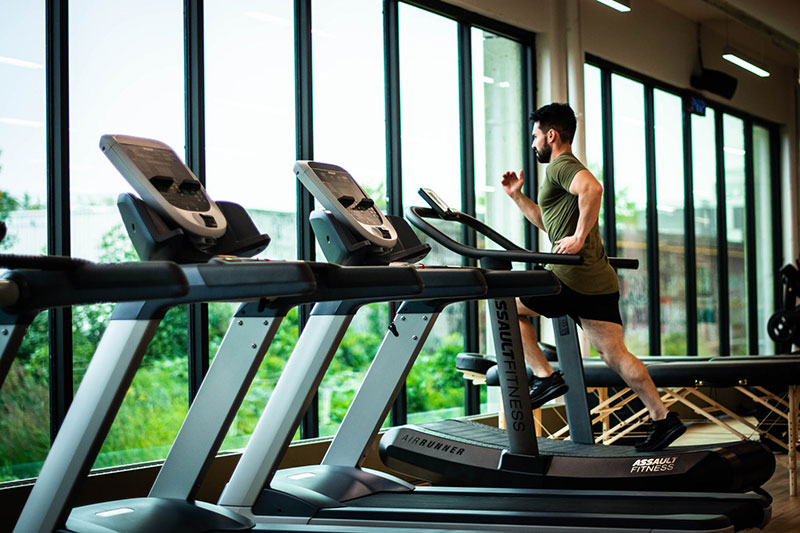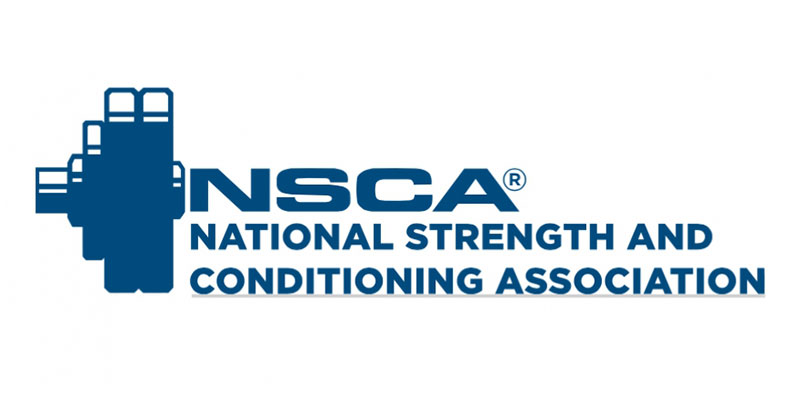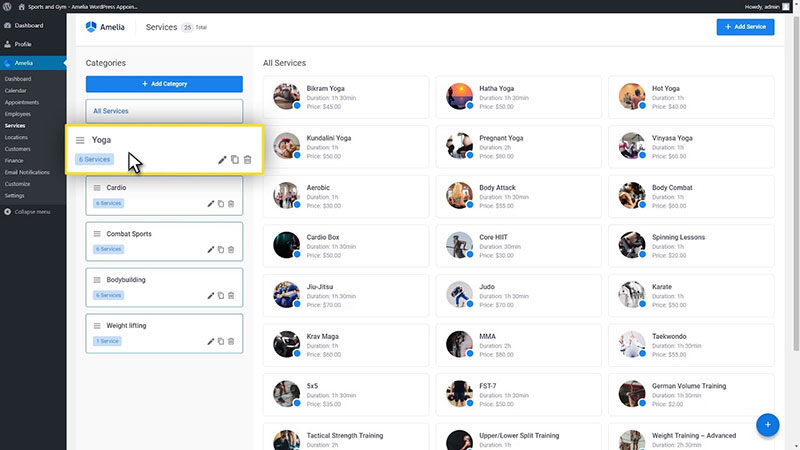Starting a fitness business can be intimidating, especially for someone who hasn’t done anything similar before. But for making profits and making the most out of your facilities and skills, you should definitely consider it.
A fitness business is centered around personal training and coaching, general fitness instruction, and the use of fitness facilities such as a gym or a personal training room.
It’s a difficult business to start; it takes a lot of organization, dedication, and management to get everything up and running. But in the end, all the effort is worth it. It’s one of the most satisfying businesses to own; not only do you get to help clients get in shape and obtain their body goals, but it’s also profitable if done right.
Just like with other businesses fields, the fitness industry is full of various niches that you can choose from. It gives you the chance to go down different paths.
This article created by our team at Amelia (the best WordPress appointment scheduling plugin), is a useful guide for those who are considering starting a fitness business.
Specialize in Your Niche

One of the most important tips for those starting a fitness business is that they should find a niche and specialize in it. There are too many fitness businesses that try to focus on everything, and they end up not getting the benefits.
If you do a little bit of everything, even though you might satisfy your customer with activities and information, you’ll get next to nothing in return. That’s because your customers will prefer learning about specific types of exercise from businesses that specialize in those niches. They’ll trust those businesses more, and will find their information more credible than yours.
For example, you can specialize in becoming a personal trainer; or, you can use your own fitness facility to perform your business. You could also try to teach classes and post lectures about what and how to do stuff.
Additionally, you’ll need to consider what type of fitness business you’ll be; will you focus on bodybuilding, calisthenics, or on general improvements of health? Those are the questions that you’ll need to know answers to before you start your business.
Research is Key
Just like with any other type of business, you’ll have to do proper and thorough research before starting.
Who are your competitors and how do they go about their business? What do other business owners do, and what methods do they use?
It might be helpful to contact other business owners in your area or across the country. You can try to call them, which is probably best. But today, there are so many options for contacting people. You can try Skype or other online communication tools.
It also wouldn’t hurt to see everything live in action. Try to visit as many businesses that you aspire to overtake or at least base your business on. You’ll find that this part is perhaps the most important piece of planning.
Get Training
If you want to be a personal gym trainer or a business owner, you naturally want to have some type of certification.
How will you be trustworthy for your customers if you don’t have the necessary training? Sure, you might have a lot of knowledge, but how will the potential customers believe you?
You’ll need a certificate from the NSCA, or the National Strength and Conditioning Association. They offer a lot of programs for personal trainers (CPT, or Certified Personal Trainer). Other institutions that offer training are NASM (National Academy of Sports Medicine), ACE (the American Council on Exercise), or the ACSM (the American College of Sports Medicine).
Develop Your Business Plan
No good business became successful without a proper and thorough business plan. If you want to have any chance of success, this is a part that you won’t want to miss. Starting a fitness business takes a lot of research and planning.
It’s better to take it slow and develop the proper plan first rather than rush it and regret it later on. You’ll need to know every detail before you start operating your business. A Lean Business Plan is perhaps the first step you should take. It is the collection of the main points and pointers about how the business will work. Every company or business has one.
This Lean Business Plan is relatively simple, but it still covers a wide array of questions that every business owner faces at the start:
- What will the company’s name be?
- What are the goals of my business?
- Industry Placement
- Marketing Strategy
- Pricing
- Gym operation
- Budget
All of these aspects are key to establishing a healthy business from the ground up.
What’s Your Target Market?
You’ll need to know who your business is targeting. Normally, it will be the people in your area of up to 3 miles around you. Ask your friends and influential people in the area to spread word about your business and help you with the promotion. It might cost you, but it’s definitely worth it.
Naturally, the radius around you is the area that you should primarily target. But what about people from outside your area? How can you attract them?
You’ll need to know exactly who you’re advertising for. Is it older people who are looking to improve their health? Or is it the young population that wants to build their ideal physique or lose body fat? Perhaps it is people who are looking for a personal trainer?
These are the things that you’ll need to know exactly.
Take Care of the Financing
You might not be able to start a business without the proper financial backing. You’ll either need to have the financial means on your own, or you’ll need to find investors who are willing to help you.
Usually, it takes up to $50.000 to get everything set up properly. That’s of course, just an estimate, and it varies from area to area, and the type of operation you are looking to run. For New York, for example, that sum might be significantly higher.
Within the budget, you’ll need to consider various things: you’ll need a location for your business, a marketing strategy is also going to cost, and of course, let’s not forget about the equipment. There are also the costs of insurance, accounting services, attorneys, cleaning services, and utility services.
You can try to lower the finances needed by buying used equipment, for example. While this is not a bad strategy for someone starting out, it can also be a double-edged sword; some people might be turned off by the old equipment.
Choose the Location

Your location might be more important than you think. Not many people will want to drive too far out to go to a gym, and there will be less competition in some areas than others. Based on the location, you can also set different prices for your services.
Another thing that a location set is a way your gym should look. If you are in a more formal location, then the gym should suit that style. In other cases, the gym might be more casual and kicked-back.
You’ll want to consider the population that you target. In some areas, the population that you wish to target is more common, while in other areas, the population is more specific and defined. For example, in suburban areas, you’ll be able to target older people as it’s a higher likelihood that they’ll live there. What you really need to take away from this is that you will lose out on clients due to your strategy.
Choosing Your Equipment

The next step after you have found your location figured out your financing and devised your business plan, you’ll want to buy the right equipment. But that goes for the design as well; you’ll want to create a more relaxed vibe with a vibrant feeling, rather than a boring place.
You’ll want to create an environment that the customers will want to return to. This also includes the equipment that you’ll use. You’ll obviously need free weights, as well as other equipment pieces, such as a bench, squat racks, treadmills, bikes, mats, and other racks.
This is just the minimal equipment; the more, the better. It’s a high initial cost, but you can always upgrade your equipment later on. Of course, it also depends on the space you have. Another good type of equipment is isolation machines, such as leg press machines, or chest fly machines.
Take Care of the Licensing
Before you start, you will need some sort of permit or license to do your business legally. That way, you’ll avoid the various fines that you can get if your business is deemed as illegal.
You will need the certifications that almost every other business owner needs. This includes the Employer Identification Number, and also the permits or licenses for ensuring the taxing requirements. A federal business license will probably not be needed, although you’ll need to comply to the laws of your state.
This could easily be under the research category, as you’ll need to know which exact licenses you will require before you start. Read more by visiting SBA’s reference to state licenses and permits.
Do Your Marketing

After you do all the basic stuff, it’s time to do some marketing.
You’ll need to get yourself known; but first, it’s important to establish a marketing strategy. What are your unique selling points? What is something that you offer that your competitors don’t? How to monetize your fitness classes online?
You can use guerrilla marketing which has been proven to work countless times, but you’ll also want to use co-marketing with other businesses from your area. There’s no need to necessarily spend thousands on billboard advertisements, though it can be fairly simple, and can get the job done.
Don’t forget the importance of online marketing. Make your presence known on social media. Also, creating a nice-looking website would not hurt. The marketing that you do online will need to be consistent with the rest of your business goals and strategies.
Get an Appointment Booking App to Boost Your Business
Next, you will need to allow your clients to book appointments with you from anywhere and at any time with an appointment booking app. Many of these apps are free, and they can really help you to boost your business.
Appointment apps are suitable for all business sizes, as many of them come with a free version. This is a crucial step in which you can get customers on board from their computers or mobile devices.
Amelia is one of the best WordPress booking plugins which gives you a simplified solution for bookings and appointments. It’s completely automated, so you won’t need to worry about appointments that much, and you won’t need to spend your time and money on it. Clients can do the bookings on their own, and from anywhere.
FAQs about starting a fitness business
1. What are the legal requirements for starting a fitness business?
Following different legal procedures, such as getting permits, licenses, and certificates is necessary when starting a fitness business. Your choice of business structure will also have an impact on your legal obligations. For example, you must register with the state and receive an Employer Identification Number if you intend to operate as a limited liability corporation (LLC) (EIN). It’s crucial to speak with a lawyer to make sure you’re adhering to all legal obligations.
2. How much funding do I need to start a fitness business?
The amount of capital required to launch a fitness business varies depending on the sort of business, location, tools, and personnel. For a small studio or gym, an approximate range is between $10,000 to $50,000, however, this might vary significantly based on the particulars of the company strategy. When applying for assistance, it’s crucial to investigate the costs and make a thorough financial plan.
3. What type of fitness business should I start (personal training, group fitness classes, gym, etc.)?
Your hobbies, abilities, and the intended market will all play a role in selecting the best kind of fitness business. While group fitness programs are best for instructors who want to manage large groups of people, personal training is suitable for individuals who enjoy a one-on-one connection with customers. The greatest candidates for owning a gym have a strong financial foundation and business background. Before selecting a choice, it’s crucial to examine the market and rivalry for each kind of business.
4. How do I create a business plan for my fitness business?
Any successful fitness business needs to have a business strategy. A market analysis, financial predictions, marketing tactics, and a summary of the supplied goods and services should all be included in the strategy. To make sure the plan is still relevant, it’s crucial to perform an in-depth study, consult with experts in the field, and evaluate it frequently.
5. What are some effective marketing strategies for a fitness business?
Building a solid brand, providing discounts and promotions, leveraging social media to reach a larger audience, and collaborating with other companies in the sector are all effective marketing techniques for a fitness firm. In order to generate repeat business, it’s also critical to deliver top-notch customer service and foster a friendly environment.
6. How do I find a location for my fitness business?
Consider aspects like accessibility, exposure, and local demographics when deciding where to locate your fitness facility. You might want to think about leasing space in a business structure or making an investment in your own property. Before making a selection, it’s crucial to undertake market research and consult with professionals in the field.
7. What equipment do I need to start a fitness business?
Depending on the kind of fitness business you want to launch, several types of equipment are required. While a club or group fitness studio could need more extensive equipment like cardio machines, weightlifting machines, and mats, a personal training firm might just need a few pieces. It’s crucial to examine the equipment required for your particular business plan and provide the necessary funds.
8. How do I hire and train staff for my fitness business?
A robust hiring procedure that includes job ads, interviews, and background checks is necessary to find the right employees and train them. Customer service, fitness practices, and safety procedures should all be taught to the staff. To guarantee that employees are satisfying client requests and upholding the standard of the company, ongoing training, and performance evaluations are also crucial.
9. What insurance do I need for my fitness business?
Any fitness business should have insurance, which might include property insurance, professional liability insurance, and general liability insurance. To establish the best coverage for your particular business, it’s crucial to speak with an insurance agent who specializes in fitness businesses.
10. What are some common mistakes to avoid when starting a fitness business?
Underestimating costs, overestimating revenue, skipping a complete market analysis, neglecting to develop a strong business plan, and forgetting to consult industry experts are all common errors to avoid when beginning a fitness business.
Also, it’s crucial to avoid skipping out on aspects of business promotion like investing in marketing methods and failing to provide friendly customer service or establish an inviting environment.
A fitness firm can succeed in a cutthroat market by avoiding these frequent blunders and concentrating on developing a strong business plan, carrying out careful research, and providing high-quality services.
How Does a Gym Make Money?
The main source of income for gyms comes from memberships, but there are also other streams of income, which include:
- Personal training
- Juice bars
- Tanning beds or saunas
- Supplements
- Massage services
Starting a fitness business is not easy, but once you get up and running, it’s extremely satisfying. You just need to take your time when you start out.
If you enjoyed reading this article on starting a fitness business, you should check out this one about opening a gym.
We also wrote about a few related subjects like how to be a successful beachbody coach, gym names, gym management software, gym marketing, managing a gym, gym owner mistakes, personal trainer website and gym WordPress theme.



